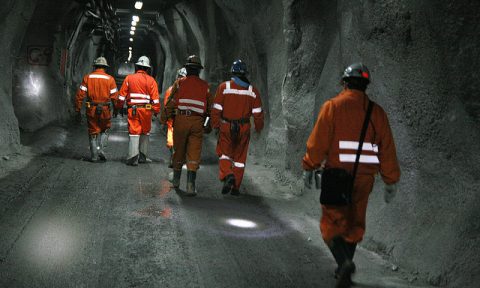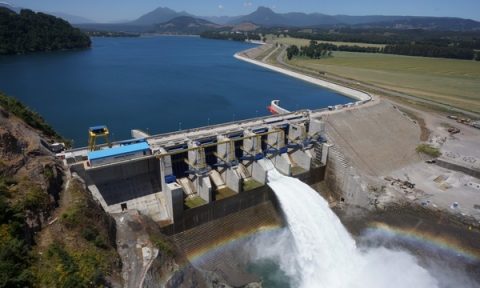Wind power accounted for 72% of generation in the Region of Coquimbo in the first quarter

The Region of Coquimbo is currently known for its diverse energy matrix, which considers traditional and unconventional sources, as an example of sustainability, to use their natural resources and promoting the creation of sources of Non-Conventional Renewable Energy (NCRE).
In fact, as reported by the SEREMI of Energy during the first three months of the year, electricity generation reached 209 GW /h in the area with significant relevance of wind power, accounting for 72% of total injection.
Thus, the six parks that use wind resource totaling 151.1 GW /h, while power plants contributed 52.22 GW /h, equivalent to 24.9% of the total. To a lesser extent, hydroelectric generation was 5.83 GW / h (2.8%), due to decreased delivery following the drought in the area for over eight years.
Meanwhile, solar photovoltaics, with the launch of new projects in the area, including those considered Tambo Real I, in the Elqui Valley, and the place of the French company Solairedirect in Andacollo, joined 673 MW /h the system, which corresponds to 0.3% of the regional total.
Nationally, wind energy inputs account for almost 70% since the Coquimbo Region accounts for over 90% of installed capacity for this type of technology that leverages the power of the wind speed.
The generation of the first quarter was higher by 74% to what occurred in the same period last year (120.5 GW / h), an increase that was seen in all types of energy. The largest increase was provided by the wind industry, incorporating Parque Talinay Oriente.
The Seremi of Energy, Marcelo Salazar, noted that the electrical grid in the region consider to conventional and renewable sources, “especially wind generation, which accounts for much of the total, and, moreover, is more than 90% of installed capacity of the country”.
Salazar also said that the regional composition of the matrix is consistent with the vision of the Ministry of Energy, who aims to “achieve energy development that takes advantage of renewable resources in a sustainable and non-polluting. In that sense, Coquimbo Region is the national leader, giving clear signs of sustainability, “said the authority.
Source: Diario El día











